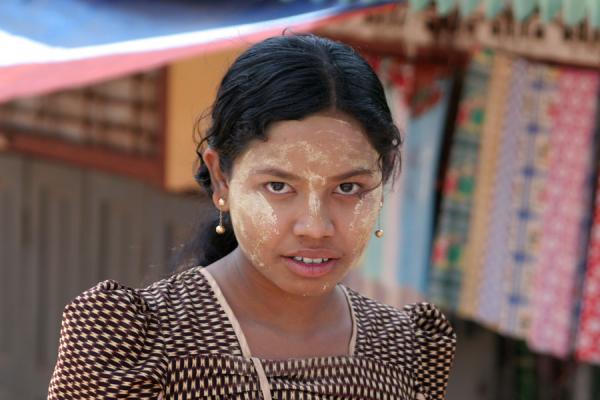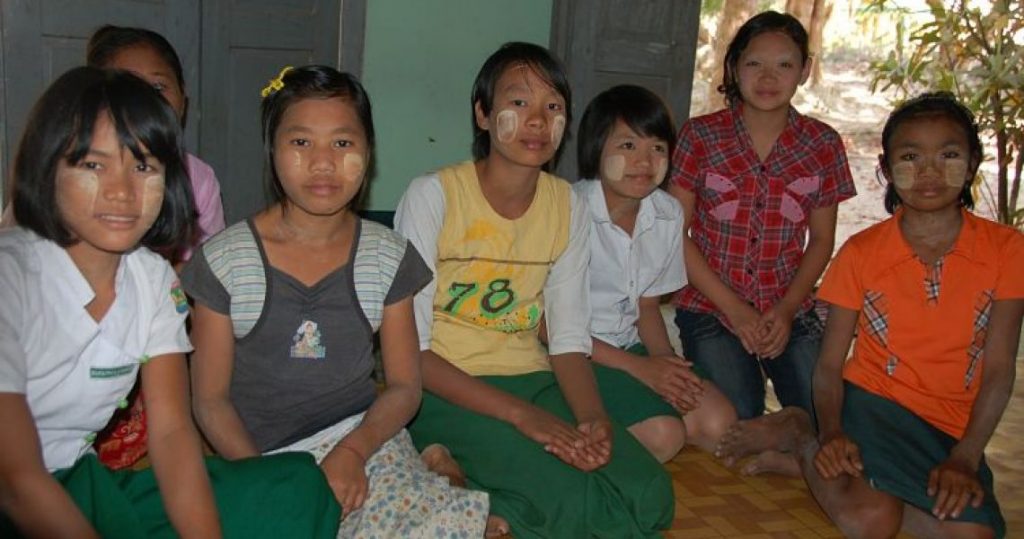The Indebted
Three rows of wooden stilts elevate Than Than Htwe’s house above a stagnant pond in Seikkyi Khanaungdho township, an island that lies at the convergence of the Yangon river and Twante canal in Myanmar’s largest city. She shares the one-room house with eight members of her family and a scourge of deadly mosquitoes that fester in the thick, green water beneath her feet.
A television used to decorate one corner of the house, balanced on a shelf to avoid the floodwater and sewage that seeped in through the floorboards while seasonal rain thrashed the hand-built structure from above. But they no longer have to worry about the television getting wet in monsoon season. They pawned it for cash earlier this year.
Than Than Htwe has struggled to support the household since her grandchildren moved in last year. With her husband out of work, she had to borrow 40,000 kyat (roughly $30) from her sister.

Every day that Than Than Htwe fails to repay the full amount, she must give her sister 2,000 kyat ($1.48) in interest. A year later and she has paid her sister far more than the original sum through these daily interest payments, but the debt still stands.
“She is really rude. She stands on the street and shouts ‘I didn’t give you that money for free’ and other horrible things,” says Than Than Htwe
She is not the only one to be crippled by high interest loans in Yangon. In a recent survey of three townships, Save the Children discovered that 85 percent of households have taken out a loan from a local moneylender. While the loan may rescue them from an immediate financial emergency, the interest rates – which range from 5 percent daily to 30 percent monthly – trap the borrower in a perpetual cycle of debt.
“I have worked in Asia most of my life and I have not come across such high levels of indebtedness. The number of people borrowing, the amount they are borrowing and interest rates are worse than anywhere else I have seen,” says urban poverty adviser Mike Slingsby.
As the commercial capital of Myanmar, Yangon is a magnet for rural migrants hoping to benefit from the country’s rapid economic expansion. But stable jobs are difficult to find. Many families rely on members who work as trishaw-drivers, street vendors or casual labourers for their main source of income. These jobs do not offer regular employment and can be severely impeded during the monsoon season, which lasts for almost half the year.
More than 80 percent of the families surveyed by Save the Children live off 2,000 kyat (roughly $1.48) per person per day, less than the global poverty line of $1.90 set by the World Bank. The majority of those tried to survive off even less, just 1,000 kyat (roughly $0.74) per person per day.
Two of Than Than Htwe’s sons work as trishaw drivers, earning about 5,000 kyat per day (roughly $3.7). Her son-in-law earns a similar wage as a casual labourer, but is offered only 10 to 15 days work a month.
Their household income was not enough to absorb the cost of her husband’s medical bill after he sustained an injury carrying drinking water from house to house. Than Than Htwe took out another loan, this time from a neighbour living across the street. She cannot remember the initial sum, but she is unable to afford the daily interest rate and her debt has now grown to 500,000 kyat (roughly $370).
“I fear the dawn and the dusk. In the morning I am worrying about having to borrow more money, in the evening I am worrying about paying it back and at night I am worrying about tomorrow. I want to escape this. I am always worrying about my debts,” says Than Than Htwe. “Just to pay my daily interest rates I have to go round [and] borrow money from neighbours, and now people resent me because I am always borrowing.”

